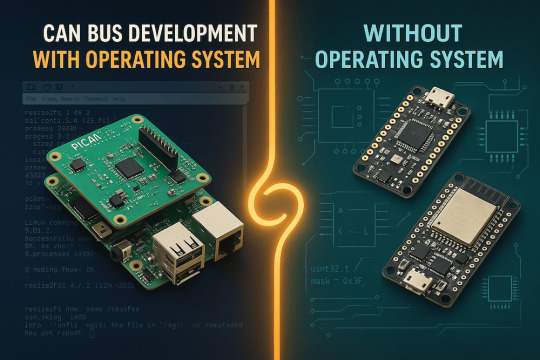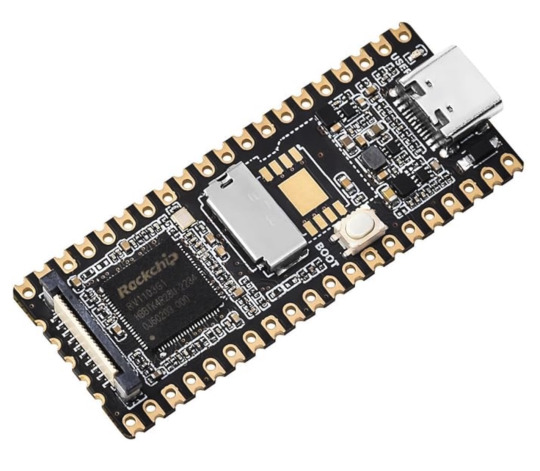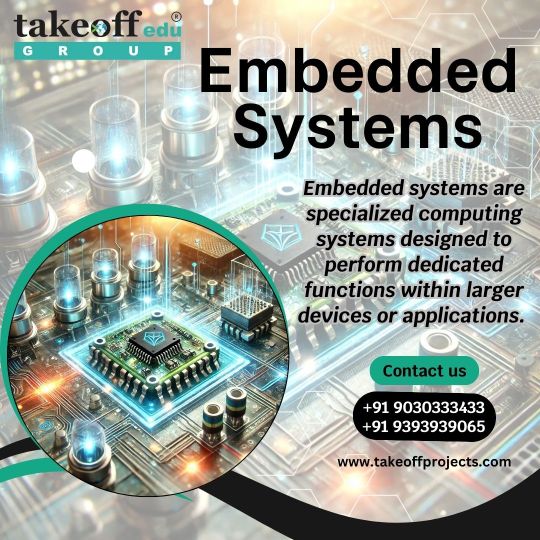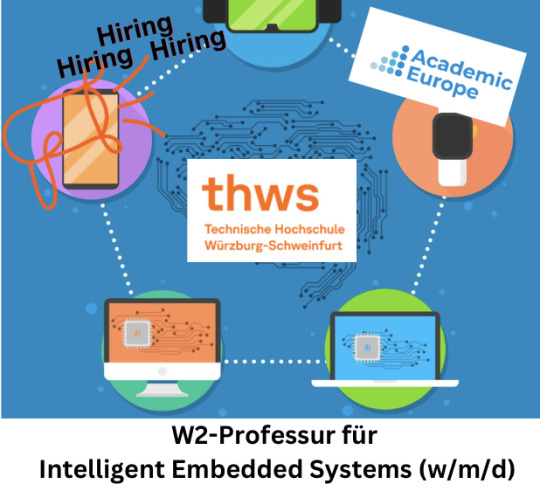#Embedded System software
Explore tagged Tumblr posts
Text
Embedded system designs & Software development
Embedded System Designs are made up of hardware and software components that are specifically designed to do certain tasks within larger systems. The main goal in designing these systems is to make sure they work well, are reliable, and keep costs low. Key parts of embedded systems include microcontrollers or microprocessors, which act like the brain of the system, and peripheral devices like sensors and actuators that interact with the outside world.

The software for these systems is usually written in programming languages like C or C++ and often needs to work in real-time, meaning it responds quickly and predictably to events. For a business like Youngmind, understanding embedded system designs is very important. These systems help make sure that electronic products are efficient, reliable, and cost-effective, leading to better customer satisfaction and lower production costs. Whether Youngmind is developing new gadgets or improving existing ones, focusing on strong embedded system designs can be a key to success.
#Embedded Design Solutions#Embedded System Design#Microcontrollers#Embedded System Designs#Embedded System Hardware#Embedded System software
0 notes
Text

CAN Bus Development for Embedded Systems: With and Without an Operating System
Explore the differences in CAN Bus development between embedded systems with or without an operating system. Compare Linux-based Raspberry Pi with PiCAN HATs to bare-metal Teensy and ESP32 platforms. Learn which solution fits your application needs.
#can bus#embedded system#CAN Bus development#linux#RTOS#Teensy#ESP32#Raspberry Pi#pican#operating system#embedded programming#software development
2 notes
·
View notes
Text
Should I actually make meaningful posts? Like maybe a few series of computer science related topics?
I would have to contemplate format, but I would take suggestions for topics, try and compile learning resources, subtopics to learn and practice problems
#computer science#embedded systems#linux#linuxposting#arch linux#gcc#c language#programming#python#infosecawareness#cybersecurity#object oriented programming#arduino#raspberry pi#computer building#amd#assembly#code#software#software engineering#debugging#rtfm#documentation#learning#machine learning#artificial intelligence#cryptology#terminal#emacs#vscode
4 notes
·
View notes
Text
Kickstart Your Tech Career: Why Internships Are More Important Than Ever
In the rapidly changing digital economy we live in today, a degree no longer suffices. What truly makes you stand out is practical experience—and that's where internships fit in.
If you are a computer science or IT bachelor's or master's degree holder, applying for a Java internship for freshers can prove to be one of the best decisions you ever took. Java remains a basis of enterprise software, and hence it is extremely important to study Java for those who are interested in working on backend development, application security, or web systems with scalability. Internships provide freshers with hands-on experience in writing optimized code, debugging, version control, and project collaboration.
On the opposite end, the world of technology is also eager for developers who excel at everything. This is why an full stack web development internship is a first preference for future professionals. With these internships, you get exposed to frontend and backend technologies—HTML, CSS, JavaScript, React, Node.js, Express, MongoDB, etc.—and you become a jack-of-all-trades of the world.
But above all, it is not that these internships simply teach you how to code, but how they teach you how to work, manage teams, deadlines, and deployable applications that solve real problems.
From product companies to tech startups or freelance work, the hands-on experience you learn through a concerted internship can define your career path. Theory is fine to learn, but experience is what gets you ready for a job.
#embedded systems course in Kerala#full stack java developer training in Kerala#python full stack developer course in Kerala#data analysis course for beginners#data analytics courses in kerala#full stack java developer course with placement#software developer internship in Kerala#java internship for freshers#full stack web development internship#software training institutes in kochi#best software training institute in kerala#best software training institute in trivandrum#software training institutes in kannur#best software training institute in calicut#data science course in kerala#data science and ai certification course#certification in ai and ml
1 note
·
View note
Text
Embedded Linux for Firmware Development

Explore how Monarch Innovation leverages Embedded Linux for advanced firmware development. From custom board support packages (BSPs) to real-time operating systems and device drivers, we deliver robust, scalable, and secure embedded solutions across industries. Enhance your embedded systems with expert Linux-based firmware development that ensures flexibility, reduced time-to-market, and seamless hardware integration.
#embedded systems#firmware development#embedded software development#embeddedsystems#embedded firmware development
0 notes
Text
Embedded Systems Software Engineer (Networking)
Job title: Embedded Systems Software Engineer (Networking) Company: TP-Link Systems Inc. Job description: Headquartered in the United States, TP-Link Systems Inc. is a global provider of reliable networking devices and smart…. Overview: We are seeking a skilled Junior Embedded Software Engineer to develop and optimize enterprise networking products… Expected salary: $100000 – 140000 per…
0 notes
Text
#Consumer Electronics Product Design#Electronic Product Design Services#PCB Design Companies in India#IoT Embedded Systems#PCB Board Design Software
0 notes
Text
Board Support Package (BSP) Development - Epsum Labs

In the world of embedded systems, getting hardware and software to work together seamlessly is no small feat. That’s where the Board Support Package (BSP) comes in—a critical component that ensures your operating system (OS) communicates effectively with your hardware.
But what exactly is BSP, and why does it matter for embedded development?
Let’s break it down step by step in simple terms.
What is a Board Support Package (BSP)?
Think of BSP as a bridge between hardware and software. It contains the essential drivers, configuration files, and bootloaders that allow an OS—like Linux—to run on a specific hardware platform.
Without it, your board is just an expensive piece of silicon!
Core Components of BSP:
✅ Bootloader – Wakes up the hardware and loads the OS into memory. ✅ Kernel & Device Tree (DTB) – Customizes the OS to recognize hardware features like GPIOs, buses, and memory. ✅ Device Drivers – Enables communication between the OS and peripherals (USB, Ethernet, Display, etc.). ✅ Root Filesystem (RootFS) – Houses system libraries, scripts, and utilities that run in user space. ✅ Board Configuration Files – Stores startup scripts and kernel configurations to define system behavior.
Step-by-Step BSP Development Process
Building a BSP isn’t just about writing code���it’s a structured process to ensure hardware and software integration. Here’s how it works:
🔹 Step 1: Hardware Bring-Up – Getting the board powered up and running. 🔹 Step 2: Bootloader Configuration & Debugging – Setting up the bootloader to initialize hardware correctly. 🔹 Step 3: Kernel & DTB Porting – Modifying the Linux Kernel and device tree to match the board’s hardware. 🔹 Step 4: Building the Root Filesystem (RootFS) – Creating the system environment using tools like Yocto or Buildroot. 🔹 Step 5: OS Bring-Up & Debugging – Testing and debugging system boot, drivers, and peripherals. 🔹 Step 6: Driver Development & Optimization – Customizing device drivers and improving boot times. 🔹 Step 7: BSP Finalization & Deployment – Packaging everything and deploying it onto the target board.
Each step ensures that your embedded system runs efficiently and reliably.
Read More on Board Support Package Development
0 notes
Text
#Embedded Software Development Services#Embedded Software#Embedded Operating System#Embedded Firmware Development
0 notes
Text
The Role of Software Development in Enhancing Embedded Device Efficiency
In the modern age of technology, embedded systems have become the backbone of numerous industries, from healthcare and automotive to IoT and consumer electronics. These systems rely on the seamless integration of hardware and software to perform specific tasks with precision and reliability. While hardware often garners attention for its visible role, it’s the software that truly unlocks the potential of embedded devices. Through optimized software development, businesses can ensure that their embedded devices achieve peak efficiency, delivering better performance, lower power consumption, and enhanced functionality. This article explores the indispensable role of software development in enhancing embedded device efficiency and how an embedded system development company can contribute to this endeavor.
Understanding Embedded Device Efficiency
Embedded device efficiency is the measure of how effectively a system performs its intended functions while optimizing resources such as energy, processing power, and memory. Efficiency in embedded devices is particularly crucial in industries that rely on real-time performance, such as medical equipment, autonomous vehicles, and smart home systems.
Key metrics for evaluating embedded device efficiency include:
Power Consumption: Reduced energy usage for prolonged device operation, especially in battery-powered systems.
Processing Speed: Faster data processing and task execution.
Reliability: Consistent performance under varying operating conditions.
Scalability: Ability to handle future updates or integrations without significant hardware changes.
Efficient embedded devices not only improve user experiences but also reduce operational costs, making them an invaluable asset for businesses.
The Synergy Between Embedded Systems and Software Development
The harmony between embedded hardware and software is critical for achieving optimal efficiency. While hardware forms the foundation, software acts as the enabler, driving the functionality of the system.
Custom software development ensures that embedded devices are tailored to meet specific application requirements. For example, an embedded system in a pacemaker requires ultra-low power consumption and real-time processing, which can only be achieved through precision-engineered software.
A few key examples of this synergy include:
Automotive Systems: Advanced driver-assistance systems (ADAS) rely on embedded software to process real-time data from sensors and make split-second decisions.
IoT Devices: Smart thermostats and home security systems depend on optimized software to manage connectivity, data processing, and energy efficiency.
Industrial Automation: Embedded software enables machines to perform complex tasks with high accuracy, reducing downtime and increasing productivity.
By bridging the gap between hardware capabilities and application demands, software development becomes the driving force behind embedded system success.
Key Software Development Practices for Enhancing Embedded Device Efficiency
To optimize embedded device efficiency, certain software development practices are essential. These practices ensure that the system performs at its best while overcoming the constraints of limited hardware resources.
Efficient Coding Standards:Lightweight and optimized code is the cornerstone of efficient embedded software. Developers prioritize minimizing code size to ensure faster execution and lower memory usage.
Low-Level Programming:Programming in languages like C, C++, or assembly allows developers to interact directly with hardware components, giving them greater control over system performance.
Real-Time Operating Systems (RTOS):RTOS manages multiple tasks simultaneously, ensuring that critical processes are executed on time. This is particularly useful in systems requiring real-time decision-making, such as industrial robots or medical devices.
Power Management Strategies:Embedded software can dynamically control power consumption by putting unused components into low-power states or adjusting processing speeds based on workload.
Testing and Debugging:Comprehensive testing ensures that the software is free of bugs that could degrade performance or cause malfunctions. Debugging tools help identify bottlenecks and optimize code further.
Leveraging Modern Tools and Technologies
Advancements in tools and technologies have revolutionized the field of embedded software development, enabling developers to create highly efficient systems.
Integrated Development Environments (IDEs): Modern IDEs streamline the development process with features like syntax highlighting, debugging, and version control.
Simulation Tools: Simulators allow developers to test software on virtual hardware, saving time and resources during the development phase.
AI and Machine Learning: AI algorithms are increasingly being integrated into embedded systems to improve real-time decision-making and predictive analytics.
DevOps in Embedded Development: Incorporating DevOps practices helps in continuous integration, testing, and delivery of software updates, ensuring that devices remain efficient and secure over time.
These tools not only enhance productivity but also ensure that the final product meets the highest standards of efficiency and reliability.
Challenges in Embedded Software Development
Despite its advantages, embedded software development comes with its own set of challenges. Addressing these challenges is crucial for achieving efficient systems.
Resource Constraints:Embedded systems often have limited memory, processing power, and energy resources, making software optimization a necessity.
Hardware-Software Compatibility:Ensuring seamless interaction between software and hardware components can be a complex task, especially when dealing with custom hardware.
Real-Time Requirements:Some applications, such as medical devices or autonomous systems, demand real-time performance, leaving little room for error or delays.
Security Concerns:As embedded devices become more connected, ensuring data security and preventing unauthorized access are critical challenges.
By partnering with an embedded system development company, businesses can overcome these challenges through tailored solutions and expert guidance.
How Embedded System Development Services Enhance Efficiency
Embedded system development services play a pivotal role in enhancing device efficiency by offering end-to-end solutions tailored to specific business needs.
Custom Design and Development: Creating software that aligns perfectly with hardware capabilities and application requirements.
Testing and Validation: Comprehensive testing to ensure that the software is bug-free and optimized for real-world use.
Compliance with Standards: Adhering to industry protocols and certifications for safety and performance.
Ongoing Support and Maintenance: Providing updates and improvements to ensure that devices remain efficient and competitive over time.
By leveraging these services, businesses can achieve superior performance, reduced costs, and faster time-to-market for their embedded solutions.
Future Trends in Embedded Software Development
The future of embedded software development is marked by exciting trends that promise to further enhance efficiency and innovation.
Edge Computing: Processing data locally on the device reduces latency and improves real-time performance.
AI-Driven Optimization: Using machine learning algorithms to predict and adapt to changing system conditions.
Open-Source Frameworks: Increasing collaboration and reducing development time through community-driven platforms.
5G Connectivity: Enhancing communication speed and reliability in embedded IoT devices.
Businesses that stay ahead of these trends will be well-positioned to lead in their respective industries.
Conclusion
Software development is the key to unlocking the full potential of embedded systems, driving efficiency, and ensuring optimal performance. By focusing on practices such as efficient coding, real-time task management, and leveraging modern tools, businesses can overcome the challenges of embedded software development. Collaborating with an embedded system development company enables organizations to create tailored solutions that meet their specific needs, setting them up for long-term success in an increasingly connected world.
0 notes
Text

Linux Micro Development Board, Integrates ARM Cortex-A7/RISC-V MCU/NPU/ISP Processors
The LuckFox Pico represents a cost-effective Linux micro development board based on the Rockship RV1103 chip, which supplies a straightforward and efficient development platform for embedded system designers. It supports a variety of interfaces, including MIPI CSI, GPIO, UART, SPI, I2C, USB, and more. Developing applications is convenient, and debugging is quick.
3 notes
·
View notes
Text
Embedded Systems Software Engineering Course
Embedded systems are at the heart of modern technology, powering devices ranging from smartphones to industrial machines. If you're a BE or B. Tech students looking to master this fascinating field, an Embedded Systems Software Engineering Course is the perfect choice. This course equips you with the knowledge and practical skills to design, develop, and deploy embedded software solutions.

Training in embedded systems focuses on the integration of hardware and software to create efficient, reliable systems. In locations such as Noida, Texas, Cambridge, Chicago, Sydney, Perth, Tampa, Brisbane, Melbourne, New York, Quebec, British Columbia, Ontario, Calgary, Alberta, and Yorkshire, these courses are tailored to meet the needs of students and professionals aiming to excel in embedded software development.
What You’ll Learn:
Basics of embedded systems architecture.
Programming with C and C++ for microcontrollers.
Real-time operating systems (RTOS) and their applications.
Debugging, testing, and deploying embedded software.
Hands-on experience with project development.
Practical Project Training
The best way to learn embedded software is through hands-on practice. Courses include real-world projects like developing IoT devices, robotics systems, and automotive controls. These projects give you a deep understanding of embedded systems and boost your confidence to work on advanced applications.
Global Opportunities
Embedded systems professionals are in demand worldwide. Whether you're in Cambridge, Chicago, or Sydney, training in this field opens doors to exciting job roles in industries like automotive, healthcare, and consumer electronics.
Embark on your journey in embedded systems software engineering today, and pave the way for a rewarding career in cutting-edge technology!
embedded software project, Embedded systems software engineering, embedded software training, embedded software course, embedded software noida, Texas, Cambridge, Chicago, Sydney, Perth, Tampa, Brisbane, Melbourne, embedded Cambridge, New York, Quebec, British Colombia, Ontario, Calgary, Alberta, Yorkshire.
#embedded software project#Embedded systems software engineering#embedded software training#embedded software course#embedded software noida
0 notes
Text
Embedded Systems: Driving Innovation in Technology
Embedded systems are specialized computing systems designed to perform dedicated functions within larger devices or applications. These systems integrate hardware and software components to execute tasks with precision, reliability, and efficiency. They are embedded in devices ranging from household appliances like washing machines and microwaves to complex industrial machines, medical equipment, and automotive systems.

An embedded system's core lies a microcontroller or microprocessor, which controls and processes data. Sensors, actuators, and communication interfaces are often part of the system, enabling it to interact with the physical environment. For instance, in a smart thermostat, an embedded system monitors temperature, processes user inputs, and adjusts heating or cooling accordingly.
Embedded systems are valued for their compact size, low power consumption, and cost-effectiveness. They are tailored for real-time operations, ensuring quick and accurate responses to specific tasks. Industries such as automotive, healthcare, telecommunications, and consumer electronics heavily rely on these systems to innovate and improve product functionality.
As technology advances, embedded systems are becoming more sophisticated, incorporating artificial intelligence (AI), Internet of Things (IoT) connectivity, and advanced sensors. These developments are paving the way for smarter devices and systems, transforming how we live and work.
In a world increasingly driven by automation and smart technology, embedded systems play a crucial role in shaping the future of innovation.
#Embedded Systems#Microcontroller Technology#Real-Time Systems#IoT and Embedded Systems#Embedded Software Development#Embedded Hardware Design#Embedded System Applications
0 notes
Text
Job - Alert 🌱

🚀 Jetzt bewerben: W2-Professur für Intelligent Embedded Systems (w/m/d)! 🌐
Die Technische Hochschule Würzburg-Schweinfurt (THWS) sucht eine/n engagierte/n Expertin/en im Bereich der intelligenten Systeme zur Verstärkung unserer Fakultät für Elektrotechnik.
📍 Standort: Schweinfurt
🗓️ Bewerbungsfrist: 16. Januar 2025
Verfügen Sie über fundierte Kenntnisse in Hardware und Software sowie praktische Erfahrung in der Forschung? Dann freuen wir uns auf Ihre Bewerbung, um die Zukunft der Embedded Systems gemeinsam zu gestalten!
👉 Erfahren Sie mehr über diese spannende Gelegenheit und bewerben Sie sich über folgenden Link: https://www.academiceurope.com/job/?id=6322
Werden Sie Teil eines innovativen Teams und gestalten Sie die Lehre aktiv mit!
#hiring#jobs#science#jobseekers#professor#embedded systems#electricalengineering#informatics#software development
0 notes
Text
https://www.futureelectronics.com/p/semiconductors--microcontrollers--8-bit/pic18f4520-i-pt-microchip-3154588
low power 8 bit microcontrollers, lcd microcontrollers, Microcontroller software
PIC18F Series 32 KB Flash 1.5 kB RAM 40 MHz 8-Bit Microcontroller - TQFP-44
#Microchip#PIC18F4520-I/PT#Microcontrollers#8 bit#low power#lcd microcontrollers#software#Programming microcontroller#Embedded controller#What is an 8 bit Microcontroller#Engine control systems#Pic microcontrollers
1 note
·
View note
Text

Unlock Your Career Potential with QIS Academy: The Best Software Training Institute in Kochi

QIS Academy, a division of Quest Innovative Solutions, is dedicated to empowering aspiring professionals with industry-relevant skills and knowledge. As the Top Software Training Institute & Placement in Kochi, QIS Academy offers a wide array of courses tailored to the demands of the tech industry. With options for both online and offline classes, expert guidance, and comprehensive placement assistance, we ensure your success in today’s competitive job market.
Courses Offered at QIS Academy
1. Data Science and Machine Learning Course in Kerala
Dive into the world of data with the Best Data Science Course in Kerala. Learn data analysis, machine learning, and AI techniques through hands-on projects and real-world case studies. This course is ideal for those aspiring to become data scientists or AI specialists.
2. Python Full Stack Developer Training in Kochi
Master front-end and back-end development with our Python Full Stack Developer Course in Kochi. Learn Python, Django, React, and database management to become a versatile developer. Recognized as the Best Python Training Course in Kochi, this program offers practical training and placement support to launch your tech career.
3. Full Stack Developer Course in Kochi
Our Full Stack Developer Course in Kochi equips you with the skills needed to build dynamic web applications. From HTML, CSS, and JavaScript to advanced frameworks, this course covers it all. Ideal for those looking to excel in front-end and back-end development.
4. .NET Full Stack Developer Course in Kochi
Learn to build robust and scalable applications with our .NET Full Stack Developer Course in Kochi. This course includes training in C#, ASP.NET, and SQL Server, making it perfect for individuals aiming for careers in enterprise-level software development.
5. Best Python Training in Kochi & Calicut
Our Python training program in Kochi and Calicut is designed for beginners and professionals alike. Known as the Best Python Training in Kochi & Calicut, this course emphasizes practical coding and problem-solving to enhance your programming expertise.
Why Choose QIS Academy?
Industry-Relevant Curriculum: All courses are designed to meet current industry standards, ensuring you’re job-ready upon completion.
Flexible Learning Modes: QIS Academy offers both online and offline classes, providing convenience for students with diverse schedules.
Expert Mentors: Learn from experienced professionals who bring real-world insights to the classroom.
Hands-On Training: Engage in live projects, practical assignments, and case studies to build your expertise.
Placement Assistance: We provide comprehensive placement support to help you secure your dream job in top companies.
Placement Assistance at QIS Academy
Our dedicated placement team ensures you’re equipped with the right skills to succeed in interviews and land high-paying jobs. Many of our students have been placed in top MNCs as full stack developers, Python programmers, .NET specialists, and data scientists.
Learn from the Best in Kerala
Located in Kochi, Kerala, QIS Academy is renowned for delivering the Best Software Training in Kochi. Whether it’s data science, full stack development, or Python programming, we provide unmatched quality and results.
Conclusion
QIS Academy stands out as the Top Software Training Institute & Placement in Kochi, offering a range of industry-relevant courses to help you excel in the competitive tech world. With expert trainers, hands-on projects, and dedicated placement support, we are proud to be recognized as the Best Software Training Institute in Kochi. Join QIS Academy today and take the first step toward building a successful career in technology!
#Best Data Science Machine Learning and AI in kochi#data science course in kerala#Best Data Science ML & AI Course in Kochi#Embedded System course#embedded and automotive systems course in kochi#python full stack course training in kochi#full stack developer course in kochi#Best Python Training in Kochi & Calicut#Best python training course kochi#python training course kochi#Python full stack development training in Kochi#Full Stack Developer Course in Kochi#java full stack development course in kochi#php full stack development course in kochi#.net full stack developer course kochi#full stack net developer course online kochi#dot net full stack developer course kochi#Top Software Training Institute & Placement in Kochi#Best Software Training Institute in Kochi
0 notes